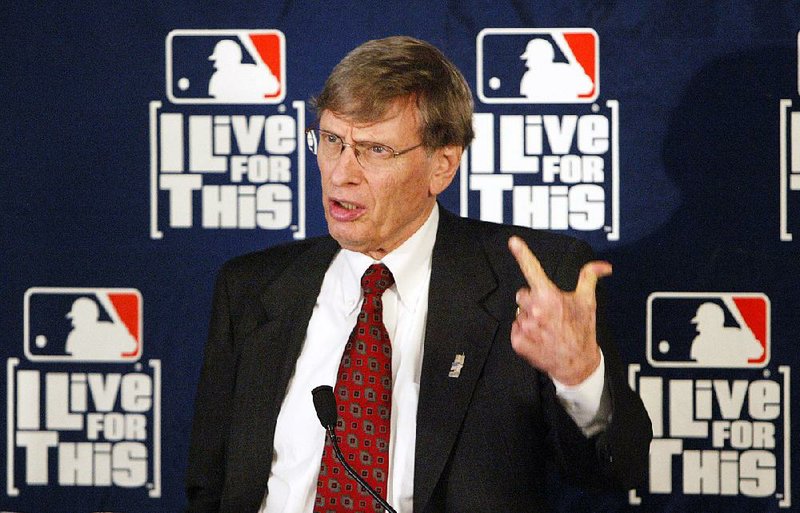NEW YORK - Bud Selig will retire as commissioner of Major League Baseball when his contract expires after next season, ending more than two decades of leadership that included an era of labor peace after losing the 1994 World Series to a players strike.
Selig, 79, previously delayed a planned retirement by signing a two-year contract extension in January2012. That decision came two months after MLB and its players union reached a five-year collective bargaining agreement, guaranteeing 21 consecutive years without a strike or lockout in a sport that had eight work stoppages since 1972.
Selig will officially step down Jan. 24, 2015, when his contract expires, MLB said in a news release.
“I am grateful to the owners throughout Major League Baseball for their unwavering support and for allowing me to lead this great institution,” Selig said. “I thank our players, who give me unlimited enthusiasm about the future of our game.
“Together we have taken this sport to new heights and have positioned our national pastime to thrive for generations to come. Most of all, I would like to thank our fans, who are the heart and soul of our game.”
Selig said he is completing a transition plan in preparation for his retirement, which will reorganize MLB’s centralized management. A successor hasn’t been named.
Selig, who owned the Milwaukee Brewers, became acting commissioner in 1992 following the resignation of Fay Vincent.
He was voted to the position on a permanent basis by league owners in 1998 and, in his 22nd season, is second in tenure behind Kenesaw Mountain Landis, the first commissioner, who led the sport from 1920 to 1944.
“Baseball is the greatest game ever invented, and I look forward to continuing its extraordinary growth and addressing several significant issues during the remainder of my term,” Selig said.
Selig oversaw the realignment of teams into three divisions in each league, the creation of interleague play and the expansion of the playoffs with wild-card entries for top nondivision winners. He also helped baseball rebound from the 1994 strike and implemented professional sports’ most comprehensive drug program through collective bargaining following an era of performance-enhancing substance abuse that led to congressional inquiries.
The latest collective bargaining agreement includes the first blood tests for human growth hormone at the top level of North American professional team sports.
Selig also has overseen historic economic growth, implementing revenue sharing among the 30 major-league teams and a competitive-balance tax on its highest-spending clubs.
Baseball’s total industry revenue was $1.2 billion when Selig took over in 1992. By 2012, MLB said, its revenue had grown to $7.5 billion.
“Bud Selig’s impact on baseball during his tenure as commissioner has been nothing short of historic,” St. Louis Cardinals owner Bill DeWitt said in a statement.
“His leadership and initiatives have led to heightened competitive balance, record attendance and revenues, new ballparks and an era of labor peace unimaginable in the prior generation.”
The past 10 seasons have featured the 10 highest attendance totals in major-league history. In the past 12 years, nine different teams have won the World Series.
“There would be no Major League Baseball in Milwaukee without Bud Selig, and there very well might be no Major League Baseball in many of our smaller cities without the economic changes instituted by Commissioner Selig,” said Mark Attanasio, the principal owner of the Brewers. “Teams from small and midsize cities can compete as a result of his innovations and the expanded postseason.”
Sports, Pages 17 on 09/27/2013

